Frontier Centre for Public Policy
“Indian Industry” cronyism
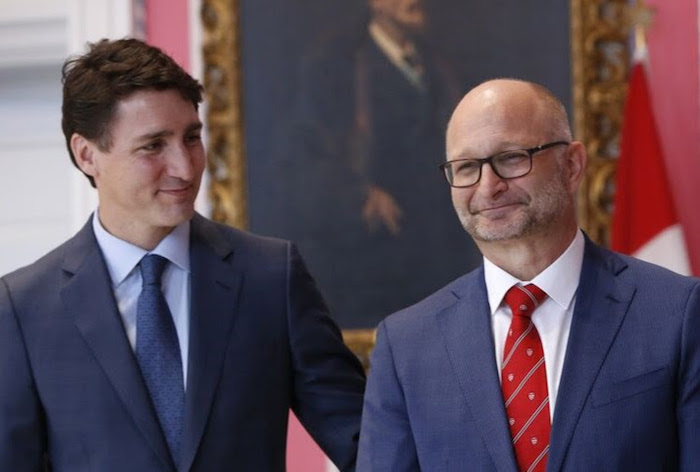
From the Frontier Centre for Public Policy
So, if the huge marginalized and dependent indigenous underclass does not benefit from all that money that changes hands inside the Indian Industry who is benefiting?
Former Justice Minister David Lametti’s departure from government and immediate acceptance into an expensive law firm that makes millions from indigenous issues is a recent example of what has long been called “The Indian Industry” at work.
It is unknown who first coined the term “The Indian Industry.” Many indigenous and non-indigenous writers have used the term over the decades. Indigenous author, Calvin Helin made liberal use of the term in “Dances With Dependency” as did Cree writer, Harold Johnson, in “Firewater- How Alcohol is Killing My People”
However, it was Frances Widdowson and Albert Howard’s important 2009 book “Disrobing The Aboriginal Industry” that first examined the Indian Industry in detail.
The authors chose to use the term “Aboriginal Industry”, perhaps for reasons of politeness, but they are describing the Indian Industry. They tell in detail how extensive it has become in Canada. Entire universities, law firms and virtually all Canadian institutions have become largely dependent on the money sloshing around within it. Almost all of that money comes in one way or another from taxpayers.
But they note the supreme irony that the Indian Industry is not improving the lot of the very people it is supposed to be helping – Canada’s marginalized and dependent indigenous underclass:
“Despite the billions of dollars devoted to aboriginal causes, Native people in Canada continue to suffer all the symptoms of a marginalized existence – high rates of substance abuse, violence, poverty. Disrobing the Aboriginal Industry argues that the policies proposed to address these problems – land claims and self government – are in fact contributing to their entrenchment.”
However, “Disrobing” was written in 2009, and since the Trudeau Liberals took over in 2015 the money flowing into the Indian Industry has increased dramatically in volume. In fact, that money flow, and the enormous indigenous contingent liabilities that now total $76,000,000,000 are growing so quickly – seven times higher since Trudeau took over – that the parliamentary budget officer has raised the alarm. Canada’s economic future is being compromised.
It isn’t only indigenous contingent liabilities – money owed for indigenous claims – that have grown so alarmingly, it is all indigenous spending. Reports from the Fraser Institute keep track of the shocking increases in total indigenous spending since the Trudeau Liberals took power. It is fair to say that the truly frightening federal government deficits in recent years occurred largely because of this extra indigenous spending.
And it isn’t only the largesse of the Trudeau government that has dumped money into the Indian Industry. Since 2015 it has also been the residential school bonanza. Clever lobbyists have been able to extract tens of billions of dollars from taxpayers by making highly exaggerated claims that residential schools were places of horror, where priests tortured, murdered and secretly buried thousands of indigenous children. These claims are nonsense. Although it is completely true that the residential school system was deeply flawed, and that many indigenous children were badly hurt by their residential school experience, it is also true that many received educations they would otherwise have been denied. But, more to the point, there is no evidence that even one child was murdered, or secretly buried during the entire history of residential schools. Despite that, baseless claims of clandestine deaths and secret burials have worked very well for everyone involved in the Indian Industry. Residential schools have become the Indian Industry’s single biggest money earner.
But, as Widdowson and Howard noted years ago, the Indian Industry has done nothing to solve what has always been called Canada’s “Indian problem” – namely that the great majority of Canada’s indigenous people remain far behind the mainstream on every social indicator. They are the least healthy, worst educated, most incarcerated, shortest living of any demographic by far.
They were that way before 2015, and they remain that way now. The Indian Industry, and the astounding amounts of money poured into it since 2015 haven’t changed those depressing numbers one bit.
A recent CBC investigative report on the dismal conditions at the St. Theresa Point reserve in Manitoba is a case in point. It is one of Canada’s hundreds of totally dependent reserves. Families there of as many as 23 people per house live in dilapidated housing, in a community that is almost totally unemployed and dependent. The increased money flow since 2015 appears to have only made dependency and all of its related problems – addiction, crime, domestic violence – worse.
So, if the huge marginalized and dependent indigenous underclass does not benefit from all that money that changes hands inside the Indian Industry who is benefiting?
It is people like David Lametti and Perry Bellegarde, and their law firms, universities, etc. – none of whom need special help.
And here is the second irony: The Indian Industry feeds on the human misery on display at communities like St. Theresa Point.
It needs that misery to continue to keep the money flowing.
This is not to suggest that any of the people and institutions that are part of it are deliberately perpetuating poverty, or doing anything illegal. They aren’t. They are simply picking up all of the free money our elected representatives and courts throw into the Indian Industry every day. They pick it up because we put it there.
It is probably not fair to single out David Lametti and Perry Bellegarde for their participation in this obscene waste of taxpayer money that is the Indian Industry. They are just two of many enterprising such people who have come before them, and many who will come after them. They probably convince themselves that they are doing something useful. They aren’t. They are part of an Indian Industry that fleeces taxpayers, while pretending to be solving the indigenous underclass problem, while making it worse. At a certain point, will Canadians grow tired of this game?
Because it has become abundantly clear that the federal indigenous policy that has developed over decades is a total failure. While privileged indigenous people who don’t need special attention are benefitting spectacularly, the indigenous people who do need the help are becoming more helpless and dependent all the time. The huge increase in the money dumped into uneconomic communities, like St. Theresa Point, is making things worse, not better. It is keeping young people, who should be moving to job centres, trapped in hopeless communities.
Renowned American economist and philosopher Thomas Sowell argues convincingly that simply giving money to chronically dependent people makes things worse, not better. I’m sure that Mr. Lametti and Mr. Bellegarde don’t want that to happen, but it is. And it is the Indian Industry that is making them wealthy that is doing it.
At some point the entire Indian Industry, with its racist Indian Act and brutal reserve system, will come to an end. Indigenous people living on Indian reserves now comprise only 1% of the Canadian population. Despite high birth rates on reserves, more and more reserve residents are moving away from them. By most measures only 25-40% of status Indians now live on reserves, and that percentage steadily falls.
Meanwhile, immigrants are steadily flowing into Canada. According to some estimates, Canada might have a population of 100 million by the end of the century. The percentage of the population living on reserves will become far less than 1%. Maintaining a completely separate system and bureaucracy for one tiny segment of the population will make less and less sense – especially to those millions of new Canadians, who don’t feel that they owe any special debt to indigenous people.
But while this natural process works itself out, the Indian Industry, now armed with the deeply divisive United Nations Declaration on the Rights of Indigenous Peoples (UNDRIP), is doing permanent damage to the country. We see that process now playing out in British Columbia, where their provincial version of UNDRIP- DRIPA – is wreaking havoc on their natural resources industry. It has become not only a virtual indigenous veto on any mining, pipeline or development project, it is now directly threatening basic landowner rights. In what is much like Chicago during the days of the Mafia, indigenous leaders all demand their “cut” before any project can proceed. This harmful process is spreading all across Canada, now that Canada has foolishly adopted UNDRIP.
And, in what is a perfect illustration of how the Indian Industry works, Perry Bellegard, as AFN Grand Chief, lobbied the government to bring in UNDRIP, David Lamerti, as Justice Minister, brought it in, and now Bellegrde and Lametti and their law firm benefit from it financially. Meanwhile, the taxpayer pays, and the marginalized and dependent indigenous majority remains marginalized and dependent.
Isn’t it time to end this farce? People who need education, and assistance to move to job centres should get that help. But pretending that making privileged people like David Lametti and Perry Bellegarde wealthier by dumping endless amounts of cash into Indian Industry cronyism is somehow good for indigenous people is nuts.
It isn’t. It’s bad for them, and it’s bad for Canada.
Brian Giesbrecht, retired judge, is a Senior Fellow at the Frontier Centre for Public Policy.
Frontier Centre for Public Policy
The Toppling of the woke authoritarians
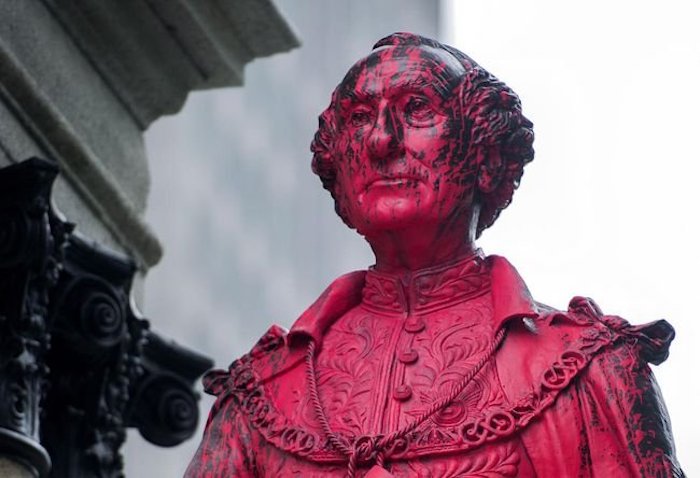
From the Frontier Centre for Public Policy
By Tom Slater, editor of Spiked.
If you – like me – loathe authoritarian, faux-progressive scolds, it’s actually been a good few years. I know it might not seem like it, with the ‘Queers for Palestine’ contingent currently running riot on American university campuses, but hear me out. Across the Anglosphere, one politician after another, beloved by the media but increasingly disliked by the public, have exited the stage, often jumping before they were pushed.
This week, we bid farewell to the SNP’s Humza Yousaf, whose year-and-a-bit-long premiership in Scotland produced more scandals and disparaging nicknames – Humza Useless, Humza the Hapless, etc – than it did any positive legacy. In the end, he proved himself to be as illiberal as he was inept. His Flagship policy, the Orwellian, broad-sweeping Hate Crime Act, alarmed voters and sparked a tsunami of spurious complaints, many of them about Yousaf himself. We can only hope it will now collapse under the weight of its own absurdity. (One thing’s for sure, voters are furious about it: only one in five Scots wants the Hate Crime Act to stay.)
Then, Humza managed to accidentally collapse his own government. He was apparently surprised to learn that his decision last week to suddenly terminate his party’s coalition agreement with the Scottish Greens –following some internal friction over trans and environmental issues – left the Greens angry and unwilling to prop up his minority government. As his short reign ends, Yousaf has at least managed the incredible feat of being even more unpopular than the leaders of the widely disliked Tories and the crackpot Greens, with an approval rating of -47. Yousaf – who was crowned first minister by SNP members and never gained a mandate from the people – was in negative numbers for all of this tenure.
Only in March, democrats were also toasting the demise of another despised, virtue-signalling leader who owed his position to elite politicking rather than democracy. Namely, Leo Varadkar. He became Irish taoiseach in 2017, after Fine Gael made him party leader. Even then, he had to rely on his support within the parliamentary party – in Fine Gael’s leadership-election process, the politicians are given much more weight than the members – given the membership voted two-to-one for his opponent. When Varadkar led his party to the polls in 2020, Fine Gael actually lost seats. Only by getting into bed with Fianna Fáil, his party’s supposed bitter rival, was Varadkar able to cling on to power.
Like Yousaf, Varadkar was a visionless leader who came to see superficial ‘social justice’ as his route to a legacy. While nominally on the centre-right economically, he was credited by international media with ‘Ireland’s transformation into a secular progressive state’. He clearly warmed to this image of himself, even if the Irish people did not. ‘We have made the country a more equal and more modern place’, he said in his resignation speech (my emphasis), ‘when it comes to the rights of children, the LGBT community, equality for women and their bodily autonomy’. This notion that Varadkar’s Ireland – like Yousaf’s Scotland – needed to be dragged kicking and screaming into the 21st century, that voters and their values desperately needed a politically correct makeover, gave the semblance of substance to his otherwise hollow premiership.
Ireland’s historic 2018 referendum, in which 66 per cent voted to overturn one of the Western world’s strictest abortion bans, was indeed a seismic blow for freedom. But Varadkar can hardly take credit for the decades of grassroots campaigning that got it over the line. His fingerprints were, however, all over the ‘family’ and ‘care’ referendums earlier this year, which produced two historic, humiliating defeats. Varadkar utterly failed to convince the people that this campaign to change the wording of the Irish constitution – to update the meaning of ‘family’ and to remove references to women’s role in the home – was anything other than an exercise in elite moral preening. He even insisted on holding the vote on International Women’s Day, just to heighten the sense of moral blackmail, even though doing so meant radically shortening the time the pro-amendments campaign had to prepare. The ‘family’ and ‘care’ amendments were rejected by 67 and 74 per cent of voters respectively. Varadkar tried to limp on, noting all major parties had backed the amendments. But this ballot-box revolt left his authority in tatters. He resigned two weeks later.
When Varadkar wasn’t talking down to voters, he was trying to censor them. Before he resigned, he had been toiling to pass Ireland’s own insanely draconian hate-speech bill, aimed at expanding restrictions on ‘incitement to hatred’ and adding gender to the list of ‘protected characteristics’, opening the door to criminalizing people for refusing to bow to the trans cult. To Scots, this may sound familiar. Indeed, it was as if Varadkar and Yousaf were competing to be the most censorious. Where Scotland’s Hate Crime Act criminalizes even private conversations in your own home (removing the so-called dwelling defence), Ireland’s proposed legislation would criminalize mere ‘possession’ of offensive material, including memes. From your phone’s camera roll to the family dinner table, no area of life is now safe, it seems, from the state censors. Having sailed through the Dáil in April 2023, the bill is now stuck in the upper house, after an almighty backlash from voters and civil libertarians. (Varadkar’s successor, Simon Harris, says he intends to table amendments to assuage voters’ concerns.)
Say what you will about Leo and Humza, at least they were occasionally – unintentionally – entertaining. Both were famously gaffe-prone. (Who could forget Yousaf’s tumble from his knee scooter, or Varadkar’s Monica Lewinsky joke in DC?) The same cannot be said for Nicola Sturgeon, the former Scottish first minister, Yousaf’s mentor and the walking embodiment of the prickly puritanism and mad identitarianism of our age. She looked upon the masses as reactionary filth – she once smeared her opponents as ‘transphobic… deeply misogynist, often homophobic, possibly some of them racist as well’ – all while ushering in the most reactionary agenda Scotland has seen for decades. Her already hated ‘gender self-ID’ reforms collapsed in 2023, when the public realized they would mean putting rapists in women’s prisons – which, by a grotesque quirk of fate, had become the ‘progressive’ position.
You could be forgiven for forgetting that the SNP was founded to achieve the ‘liberation’ of Scotland from the UK, rather than the ‘liberation’ of perfectly healthy genitals from the bodies of confused young people. It speaks to the grip of woke identity politics over the technocratic, centre-left imagination that Sturgeon was not only sidetracked but, in part, brought down by her dogged, fanatical pursuit of ‘trans rights’. Then again, social engineering has characterized much of the SNP agenda since it first came to power. Ending the Union has often taken a back seat to reforming Scots, from the SNP’s crackdown on offensive football chants to its profoundly creepy ‘named person’ scheme, which would have assigned a state guardian to every child had it not been held up in the courts on human-rights grounds.
One of the hallmarks of our woke, technocratic ruling class is that they increasingly define themselves against their own citizenry. Leaders today draw their moral authority not from the democratic endorsement of their electorates but from their ability to rise above the throng, to oppose our supposedly backward values. Skim-read the resignation speeches of Sturgeon, Yousaf and Varadkar and you’ll find them all peppered with rueful references to ‘populism’, ‘polarization’ and the supposed ‘toxicity’ of contemporary discourse. Voters are forever the implied villains of the piece, for refusing to just shut up and let the adults get on with governing.
All this speaks to why elites have become so insanely authoritarian in recent years. What we used to call illiberal liberalism, along with greenism and multicultural identity politics, has held a malign sway over our rulers for decades. But all these tendencies have been sent into overdrive over the past eight years. In the wake of Brexit and the rise of a more populist, democratic politics, our leaders have been confronted with the chasm that exists between their values and ours. And having failed to convince, they can only compel, coerce, punish. This self-righteousness has also bred an obnoxious, unabashed narcissism. In her resignation speech, Sturgeon used the words ‘I’, ‘me’ and ‘my’ 153 times. ‘Scotland’ appeared 11 times.
Covid added further fuel to this fear and loathing of the populace.
Politicians, already gripped by the panic about supposedly dim, irresponsible voters being manipulated by disinformation, gave full vent to their most authoritarian tendencies – locking us down and raging against any dissent. Arguably, no one did so as enthusiastically as New Zealand’s Jacinda Ardern, who was showered with praise by the globalist great and good for subjecting her own citizens to an unhinged ‘Zero Covid’ experiment. Naturally, she also became a campaigner for global censorship during this time, telling the United Nations in 2022 that ‘misinformation’ constituted a modern ‘weapon of war’, and calling on global leaders to confront climate-change deniers and peddlers of ‘hate’. She announced her resignation as prime minister and Labour leader in January 2023, just as she was enjoying her lowest-ever poll ratings while in office, all to the swoons of international media. Labour was wiped out later that year, in the worst election defeat of a sitting NZ government for decades.
Politicians seem to be going out of their way to alienate and infuriate voters, pursuing unpopular policies at the very same time as they demonize and clamp down on debate. On climate, they have embraced a programme of national immiseration, to be borne on the backs of the working classes, who are expected to just accept being colder, poorer and less mobile. On immigration, they have thrown open the doors to migrants and refugees on an unprecedented scale, without seeking public consent and without ensuring proper provision for – or vetting of – those arriving. On culture, they have embraced a new form of racism under the banner of anti-racism, and a misogyny and homophobia posing as ‘trans inclusion’. Meanwhile, voters are beginning to realise that all those calls to censor ‘hate’ and ‘misinformation’ are calls to censor them.
Even in Justin Trudeau’s Canada, a land long held up as ‘immune’ to populism, a backlash is stirring. The Canadian premier embodies woke authoritarianism in its most cartoonish form. When, in 2018, a woman confronted him at a corn roast about Canada’s enormous influx of refugees, he accused her of ‘racism’ to her face. Hell, he once corrected a woman who said ‘mankind’ instead of ‘peoplekind’. Worse still, his outrageous clampdowns on dissent make his contemporaries look subtle by comparison. When truckers rebelled against Covid mandates, he invoked emergency powers to freeze their bank accounts, break up their rallies and forcibly clear the streets. Of course, he’s also now trying to pass his own piece of censorship legislation, Bill C-63 – which, among other alarming provisions, would allow for people to be placed under house arrest if they are deemed likely to commit a hate crime. You know, like ‘precrime’ in Philip K Dick’s The Minority Report. Incidentally, Trudeau’s Liberal Party is currently trailing the Conservatives by a steady 19 points in the polls.
Wokeism. Climate extremism. Kindly authoritarianism. This is now the operating system of Western, ‘centrist’ politics. Take Joe Biden, America’s somnambulant president. At the 2020 election, even anti-woke liberals insisted this scion of the old Democratic establishment – a man so old he can’t even be slurred as a Boomer (he’s actually Silent Generation) – was the man to return America to normality, before the BLM riots and MAGA mania. ‘If you hate wokeness, you should vote for Joe Biden’, declared a piece in the Atlantic, arguing that Trump is to the culture war what kerosene is to a dumpster re, fueling the woke extremes. That take has aged like milk. On his first day in office, Biden signed sweeping Executive Orders on ‘racial equity’ and gender ideology. He later tried to apportion Covid relief on the basis of race. He’s a Net Zero zealot. He has allowed the justice system to be weaponised against his opponents. He invited Dylan Mulvaney to the White House, FFS. Biden’s return to ‘normalcy’ has been so successful millions of Americans are starting to wonder if Donald Trump might actually be the saner choice.
Everywhere, political leaders are pursuing the same batshit, authoritarian policies and everywhere they are colliding with reality – and the electorate.
Yousaf, Varadkar, Sturgeon and Ardern may have stepped down, but they did so in the face of growing public fury. Biden and Trudeau may not get the same privilege. Plus, while technocratic centrists remain in power or the ascendancy in various nations, they are at least being forced to adapt, albeit insincerely, to the new political reality – one in which voters are increasingly unwilling to put up with the punishing green policies, out-of-control transgenderism and woke censorship that have been rammed down their throats for years. And so, Labour’s Keir Starmer has suddenly worked out what a woman is. The SNP is watering down some of its ludicrous. Net Zero targets. Welsh Labour is paring back its more insane anti-car policies. The Irish government is finally, tacitly, admitting that it has let migration and asylum get out of control (albeit by just blaming it on the British).
The new authoritarianism is far from defeated. It is a feature, not a bug, of our technocratic ruling class. Worse than that, it is what gives our leaders meaning. The conviction that they are saving the world from a climate armageddon, that they are the protectors of all those supposedly easily offended minorities, that they must censor and re-educate the masses for our own good, has provided moral purpose to an otherwise simpleminded and disorientated elite. It won’t be easy to dislodge this stuff. But as one political leader after another exits the stage, having shredded their authority with voters, we see that the common sense of the demos remains our greatest defence against the insanity of the elites – if only we can find better ways to channel it. If there is hope, it lies in the masses. Always.
Tom Slater is editor of Spiked.
COVID-19
Peckford: Hallelujah! Supreme Court of Canada to hear Newfoundland and Labrador charter case

From the Frontier Centre for Public Policy
This will allow the SCC to address novel questions about the scope of mobility rights in Canada and the extent to which the government can limit Canadians’ rights to move freely around the country.
In what can only be considered a surprise move the SCC has agreed to hear an appeal of a decision of the Supreme Court of Newfoundland. Surprise because the Newfoundland and Labrador Court of Appeal refused to hear the appeal of this exact case.
For the Appeal Court it was the all too familiar excuse of the whole thing being too moot for the Court.
But now the SCC has agreed to hear the case. The parties, Kimberly Taylor and The Canadian Civil Liberties Association appealed to the court.
Here is a copy of the Civil Liberties Press Release dated April 26, 2024:
“Arbitrary travel restrictions infringe on the mobility rights of Canadians. CCLA’s challenge of Newfoundland government’s Bill 38 will continue before the Supreme Court of Canada (SCC), so that Canadians have clear, predictable, and stable answers to fundamental questions affecting their basic mobility rights.”
Back in May 2020, CCLA challenged the constitutionality of the Newfoundland government’s Bill 38 before the province’s Supreme Court. This Bill provided for a travel ban between provinces and other restrictive measures in the context of the COVID-19 pandemic. CCLA asked the Court to declare Bill 38 in violation of s.6 (mobility rights), as well as other Charter rights. CCLA also argued that the law could not be saved by s.1, which says that limits on rights must be reasonable and demonstrably justified. In September of 2020, the province’s Supreme Court found that the travel ban did violate the s.6 Charter right to mobility, but that such infringement could be justified under s.1. CCLA pursued this case before the Newfoundland and Labrador Court of Appeal. In August of 2023, the Court of Appeal refused to settle the merits of the appeal under the motive that it was moot, since the ban had been lifted. This was done despite all the parties urging the Court of Appeal to decide the appeal on the merits.
CCLA is pleased to learn that the SCC just granted its application seeking leave to appeal in this case. This will allow the SCC to address novel questions about the scope of mobility rights in Canada and the extent to which the government can limit Canadians’ rights to move freely around the country. CCLA is grateful for the excellent pro bono work of Paul Pape, Shantona Chaudhury and Mitchell McGowan from Pape Chaudry LLP in this file.”
Like the Association I am pleased that the highest court is going to hear the case. One can only assume that it will not just issue a silly moot decision given that they could have let the Court of Appeal decision of Newfoundland stand and not hear the case.
I hope the highest court considers the following given it is high time for the Constitution of This Country to be fairly applied and interpreted as written.
Courts have not the power to rewrite this sacred document. They are not omnipotent. That is for the people through its elected representatives as expressed in Section 38 of the Constitution Act 1982 in which the Charter is located—the Amending Formula.
The intent of Section 1 Of the Charter was that it could only be applied in a war, insurrection, the state being threatened circumstance. As one of the First Ministers involved and whose signature is on the original Patriation Agreement I submit this point of view was what was operative at the time of the construction of this section. All remaining First Ministers whose names are on that document are no longer with us. Sadly, no court has called me to provide my view.
This intent is clear In Section 4 (2) of the Charter:
“In time of real or apprehended war, invasion or insurrection, a House of Commons may be continued by Parliament and a legislative assembly may be continued by the legislature beyond five years if such continuation is not opposed by the votes of more than one-third of the members of the House of Commons or the legislative assembly, as the case may be.”
So, decisions that have been made concerning the Charter should only be made in this context. Numerous court deliberations here and in many western jurisdictions have considered intent in determining the legitimacy of legislation. This is not novel or new.
Hence, a glaring, fundamental mistake has occurred in interpreting our Charter. The blatant omission of considering the opening words of the Charter in any interpretation of legislation by the Courts is an abuse of the Charter, our Constitution. Where is the power provided the courts to engage is such omission? Those words are:
“Whereas Canada is founded upon principles that recognize the supremacy of God and the rule of law:”
The one reference of which I am aware in the Courts literature to any consideration of the opening words relating to God was by an Alberta Judge in a lower court foolishly indicated that the creators of the words did not identify God as being a Christian God. All the creators, the First Ministers, were Christians —that’s all. What an insult to our history and traditions and the authors?
And this has been allowed to stand?
And what about the rule of law? Little if anything has been done in considering and interpreting this point.
As for Section 1 itself of the Charter. If one can get past the previous points, which is impossible, but let’s speculate: the court in question in Newfoundland, like the courts across the land, have disfigured, misinterpreted the wording of this section —-
Rights and freedoms in Canada
The Canadian Charter of Rights and Freedoms guarantees the rights and freedoms set out in it subject only to such reasonable limits prescribed by law as can be demonstrably justified in a free and democratic society.
What is of crucial importance is ‘demonstrably justify ‘and a free and democratic society ‘—-is it not? Many try and evade confronting these concepts by emphasizing ‘reasonable ‘. But ‘reasonable ‘is qualified, if you will, with ‘as can be demonstrably justified ‘and ‘in a free and democratic society.’ This was deliberate by the creators and authors of this section.
So, as we all know such reasonable demonstration would be a cost benefit analysis, a tool used frequently by Government in considering new policies or programs —and this case especially when sacred rights enshrined in the constitution were to be taken way!!! Yet, there was none! And what about the Provincial Emergency Management organizations that were already established in all the provinces with immediate expertise. Were they consulted? Not one!
No such attempt was made, and the Governments did not conduct even a cursory cost benefit review and the courts eagerly accepted the one-sided Government narrative. Yet experts like Lt. Colonel David Redman, who had been involved in Emergency Management and had written extensively on it were never consulted!
And ‘free and democratic society? Was there any meaningful engagement of the Parliament of Canada or the Legislative Assemblies —-not really, ——only to delegate power to unelected bureaucrats and relieve the politicians of direct responsibility. Where were the Parliamentary Committees? The sober consideration of all points of view in an open public session? Of independent science? Does not free and democratic society entail such deliberations?
And to those courts / governments who talk about little time—in this Newfoundland case it was 6 months before The Supreme Court of the Province ruled and 15 months for the Court of Appeal to issue a non-decision! So much for serving the people!
As for the concept of ‘mootness ‘that has been most dramatically used by the Federal Court and the Federal Court of Appeal and The Court of Appeal in Newfoundland? This is a construct of the court not the Constitution.
It denies a citizen the right to know whether a government action to which a citizen was subjected violates the Charter. Should a court idea of mootness, refusing to rule on whether a government action of only months before overruling the people’s right to know if their rights and freedoms were violated? Is this not the role of the Court? To protect the rights and freedoms of the citizens from Government overreach? That was and is the whole point of the Charter.
Whether the Government action is presently operative or not should be irrelevant, especially when millions of citizens were involved and especially when it involved rights and freedoms protected under the Charter, our Constitution. There may be a role for mootness if a frivolous matter is established but by any measure what we are discussing is anything but a frivolous matter, even though The Newfoundland Court of Appeal in calling the whole thing ‘moot ‘had the gall to find the Government’s action of denying rights ‘fleeting.’ Courts have abdicated their solemn responsibilities to the people in the exaggerated use of such Court constructed procedures.
So the highest court can go back to ‘first principles’, and examine intent and the opening words of the Charter and place them in full context in any interpretation of the Charter. If this were done then Section 1 of the Charter would not even be in play. Constructing a hypothetical i.e. considering Section 1 of the Charter during the so called ‘covid emergency’, well, even if we do, the Government and Court reasoning would have failed as demonstrated above.
There is an opportunity through this case as well as the one in which I am involved for our highest court to get it right——to return to the full constitution and re-establish the ‘supremacy of God and the rule of law, ‘the legitimate role of Parliament, to the plain meaning of demonstrably justify, and the importance of intent in interpreting our Charter.
Is the Supreme Court of Canada up to the challenge?
Will our Constitution, our democracy be restored?
The Honourable A. Brian Peckford P.C. is the last living First Minister who helped craft the Canadian Charter of Rights
Watch – Leaders on the Frontier: Brian Peckford on Saving Canada’s Democracy | Frontier Centre For Public Policy (fcpp.org) January 20, 2022
-

 Automotive1 day ago
Automotive1 day agoGovernments in Canada accelerate EV ‘investments’ as automakers reverse course
-
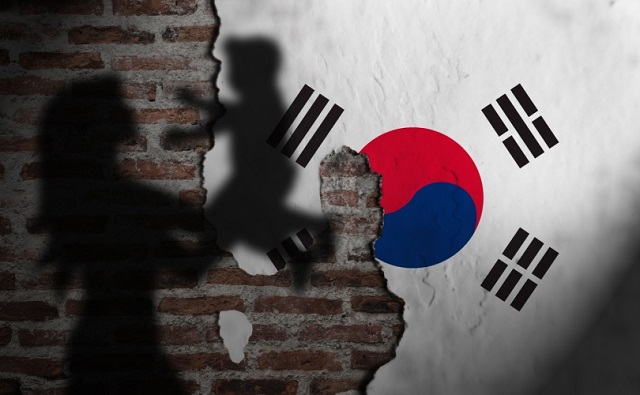
 Health1 day ago
Health1 day agoSouth Korean president declares low birth rate a ‘national emergency,’ plans new ministry to address it
-

 COVID-192 days ago
COVID-192 days agoJapan’s most senior cancer doctor: COVID shots are ‘essentially murder’
-
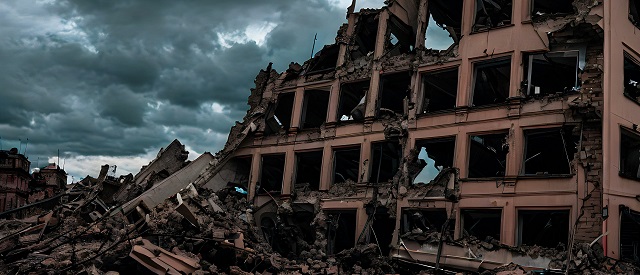
 conflict20 hours ago
conflict20 hours agoWhite House Reportedly Worried About Russia’s Sudden Momentum Months After Biden Declared Putin ‘Already Lost’ War
-
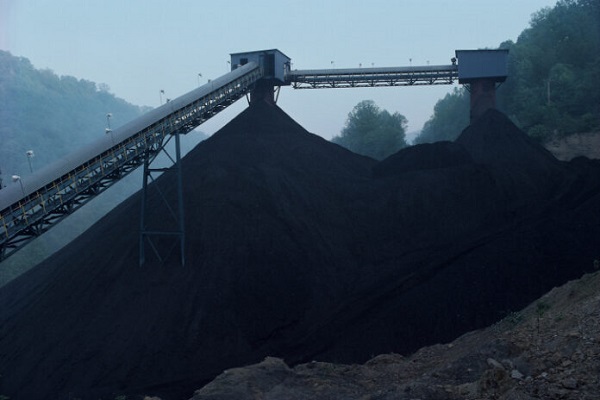
 Economy2 days ago
Economy2 days agoBiden signs suicidal ‘No Coal’ pact, while rest of world builds 1,000 new plants
-
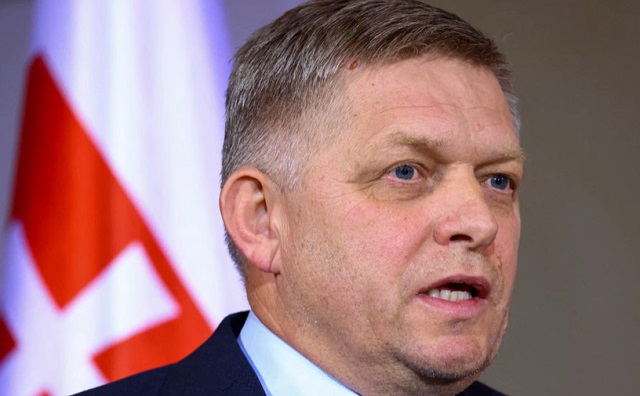
 Crime21 hours ago
Crime21 hours agoSlovakian prime minister who opposed WHO Pandemic Treaty shot in assassination attempt
-

 Alberta1 day ago
Alberta1 day agoFortis et Liber: Alberta’s Future in the Canadian Federation
-

 Health1 day ago
Health1 day agoUK pediatrician who led review of child ‘transitions’ says US medical groups ‘misleading the public’








